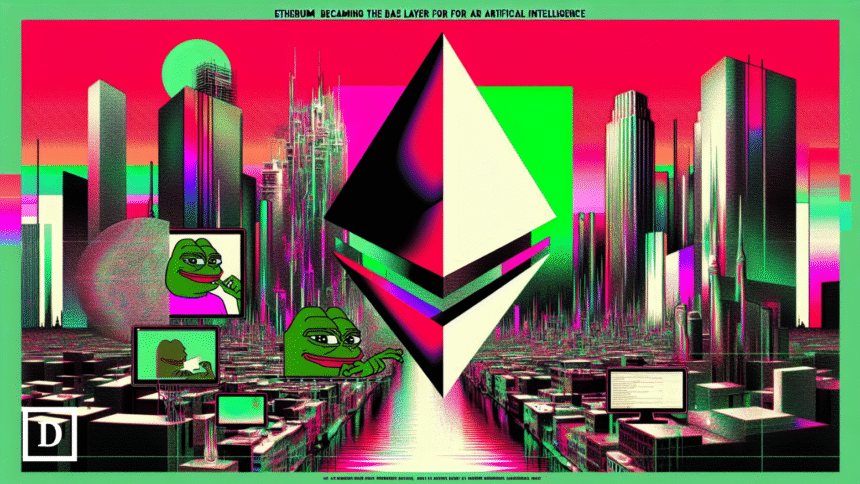The Ethereum Foundation is making a significant move into the artificial intelligence space with the establishment of a new unit known as the “dAI Team.” This initiative aims to position Ethereum as the leading settlement and coordination layer for autonomous AI agents and the burgeoning machine economy. This development aligns with similar efforts from other blockchain networks, such as NEAR Protocol and Solana, which are also striving to create blockchain infrastructure tailored for the AI economy.
In a recent post on X, Davide Crapis, who leads the dAI Team and previously served as a researcher at the Ethereum Foundation, outlined the initiative’s dual focus. The first goal is to create tools that allow AI agents and bots to transact and operate according to preset rules without the need for intermediaries. The second focus is on establishing a decentralized AI stack, which would ensure that forthcoming AI developments are not overly reliant on a handful of centralized companies.
Central to this effort is the introduction of ERC-8004, a forthcoming Ethereum standard designed as a “trust layer” for AI agents. This proposed standard aims to enhance the existing Agent-to-Agent (A2A) protocol by incorporating a reputation system that helps users evaluate AI agents based on their past behavior and demonstrated identity. According to Crapis, this framework will enable interactions across organizational boundaries without necessitating pre-existing trust between parties.
With ERC-8004, users won’t have to place blind faith in an AI bot; they can verify an agent’s identity and performance through registries maintained on the Ethereum blockchain. Crapis noted that the Ethereum Foundation plans to collaborate closely with the Linux Foundation and stakeholders involved in the A2A ecosystem to refine these specifications.
Nick Johnson, who leads the Ethereum Name Service (ENS), highlighted the pressing need for decentralized standards governing agent identity and trust to ensure that autonomous systems are accountable and able to interact seamlessly. He emphasized the importance of establishing benchmarks for identity and reputation transparency, cautioning against allowing centralized solutions to dominate in an era increasingly defined by AI-driven transactions.
By launching a dedicated team to explore decentralized AI and the future of the AI agent economy, the Ethereum Foundation is joining a competitive landscape that includes leading players striving for dominance in the decentralized AI sector. NEAR Protocol has labeled itself as “the blockchain for AI,” while developing frameworks like Shade Agents, which facilitate the operation of autonomous bots across various chains while maintaining data privacy.
Alex Shevchenko, a former NEAR Protocol product manager now at Aurora Labs, described two exciting applications of AI on the blockchain: the transfer of value and collaborative AI research. He pointed out that traditional financial systems are ill-equipped for AI agents, suggesting that cryptocurrency might provide a more suitable solution for the AI economy. Additionally, he remarked on the inefficiencies caused by the siloed nature of current AI research, advocating for decentralized and confidential collaborative machine learning as the way forward.
Solana has responded to these developments by providing developers with an Agent Kit, enabling them to directly integrate AI models into decentralized finance (DeFi) and on-chain applications. This functionality allows AI agents to manage trades, liquidity, and other DeFi activities autonomously, including the creation and lending of non-fungible tokens (NFTs).
Contrasting with competitors, SingularityNET, a protocol focused specifically on decentralized AI, has opted for a collaborative approach by forming the Artificial Superintelligence Alliance with Fetch.ai and Ocean Protocol. This alliance aims to create a unified platform where developers can deploy AI solutions without relying on centralized providers.
In the broader tech landscape, industry giant Google has also announced its entry into this space with the introduction of AP2, a payments protocol for AI agents via Google Cloud. This protocol promises to blend traditional financial methods with stablecoin support, collaborating with crypto partners such as Coinbase, MetaMask, and even the Ethereum Foundation.







